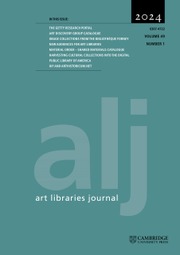No CrossRef data available.
Article contents
Demystifying design: the information needs of non-professional designers
Published online by Cambridge University Press: 06 June 2016
Abstract
Everybody is a designer, or at least has a right to be involved as an active participant in the design of the world around them. Information needed for successful design includes both ‘expertise’, and also, information from people themselves, about themselves and their localities. Professionals, who may regard expertise as their exclusive property, tend sometimes to neglect this second category of information; non-professionals who engage in design are familiar with their own requirements but may need more technical information than is readily available to them. Those professional designers who interpret their role as one of facilitating participation in design, will willingly share their expertise while at the same time appreciating the value of the information and skills which non-professionals can contribute. Libraries, and other information agencies, can also help to make both categories of information available to professionals and non-professionals alike. In a global context, there is a need for indigenous knowledge and traditions to be recognised and respected by ‘experts’ from those countries in which professional specialisms are highly developed, and by the growing design professions in developing countries themselves.
- Type
- Research Article
- Information
- Art Libraries Journal , Volume 16 , Special Issue 3: Special issue: ‘To communicate design’ , 1991 , pp. 25 - 31
- Copyright
- Copyright © The Art Libraries Society 1991


